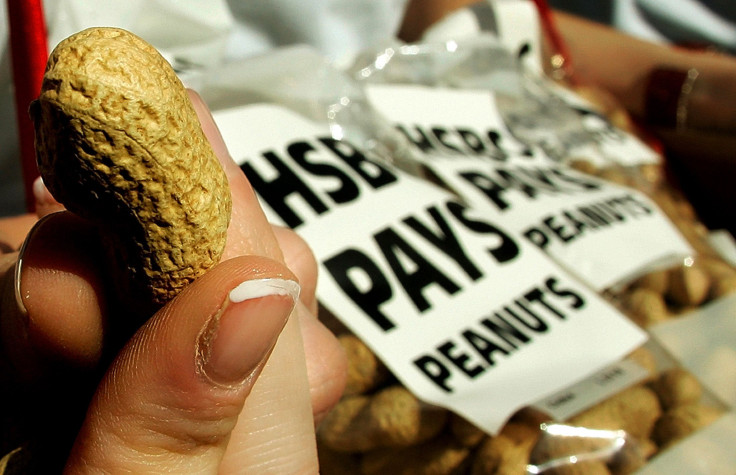Yogurt and Fermented Food May Be Used As A Cure For Peanut Allergies, Study Suggests

Australian scientists have found yogurt and fermented food to be a possible cure for people with deadly peanut allergies.
These days, peanuts are used in just about everything — from ice cream flavours to chocolates and other desserts. Unfortunately, there are many people, especially children, who suffer from serious peanut allergies, which can also be fatal. To find a potential cure for this, researchers from the Murdoch Children’s Research Institute conducted a study on 30 allergic children.
All the study participants were given a daily dose of peanut protein with a probiotic Lactobacillus rhamnosus for 18 months. The amount of this dose increased periodically over the study period. Researchers noted that the dose was equal to eating 20 kg of yogurt daily.
“Many of the children and families believe it has changed their lives, they’re very happy, they feel relieved,” said lead researcher Mimi Tang in a press release. “These findings provide the first vital step towards developing a cure for peanut allergies and possibly other food allergies.”
Researchers observed that 80 percent of study participants were able to eat peanuts without an allergic reaction when they took together the peanuts with yogurt.
According to statistics, one in every 100 Australian children suffers from peanut allergies. However, these statistics may not be accurate and this number may be higher considering there are many other factors to take into consideration.
“We focused on peanut allergies because it is usually lifelong and it is the most common cause of death from food anaphylaxis,” Tang said. “We will be conducting a follow-up study where we ask children to take peanuts back out of their diet for eight weeks and test them to see if they’re tolerant after that,” Tang said.
"Though it sounds simple, she warned against trying the treatment at home, as the results also showed some children had serious reactions. Some families might be thinking about trying this at home, but we would strongly advise against it. In our trial, some children did experience allergic reactions that were sometimes very serious.”
Symptoms of peanut allergies
Children are most susceptible to such allergies. Officials recommend that parents of such children should always keep an epinephrine auto-injector (such as an EpiPen®, Auvi-Q™ or Adrenaclick®) handy at all times. Listed below are some symptoms of this allergy that parents should keep a look out for.
- Skin reactions
- Digestion problems
- Itching in the mouth and throat
- Breathing problems
- Running nose
To contact the writer, email: sammygoodwin27@gmail.com




















